Gay men in Africa are blaming President Trump’s decision to cut funding for HIV/AIDS prevention for their diagnoses of the virus.
The administration’s sweeping cuts to foreign aid have reduced access to medications like Pre-Exposure Prophylaxis, or PrEP, which decreases the risk of contracting HIV by 99 percent.
Emmanuel Cherem, 25, a gay men in Nigeria, told Reuters that he tested positive for HIV two months after losing access to the US-supplied drug.
‘I blame myself… Taking care of myself is my first duty as a person,’ he said.
‘I equally blame the Trump administration because, you know, these things were available, and then, without prior notice, these things were cut off.’
Echezona, 30, another gay man from Nigeria, told Reuters that he took PrEP pills daily for three years until he was told by a clinic worker that the drug was now only available to pregnant and lactating women.
‘I just pray and wish that Trump actually changes his policy and everything comes back to normal so that the spread and transmission of the virus would be reduced,’ he said.
Trump issued an executive order on his first day in office that paused foreign development assistance for 90 days, while Secretary of State Marco Rubio signed a ‘stop work order’ to employees of the State Department’s Office of Foreign Assistance.
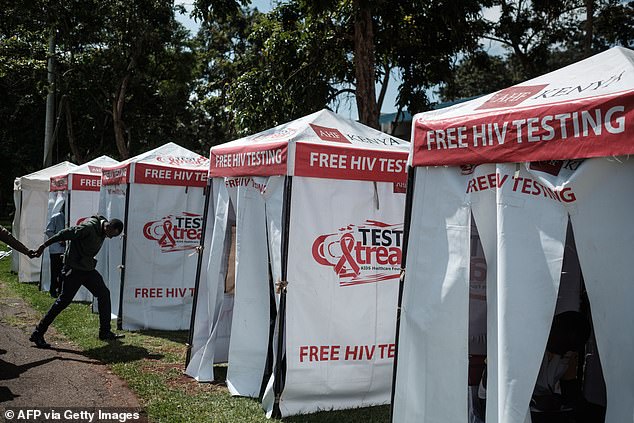
Gay men in African countries have reported struggles accessing HIV prevention medication amid drastic cuts to foreign aid programs (Pictured: HIV testing booths in Nairobi, Kenya in 2017)
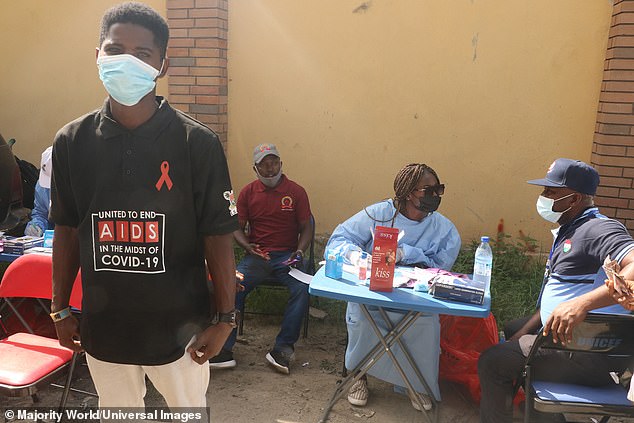
The Trump administration has taken a hardline stance against providing aid, urging other countries to shoulder the burden of prevention measures (Pictured: Health workers providing care in Nigeria)
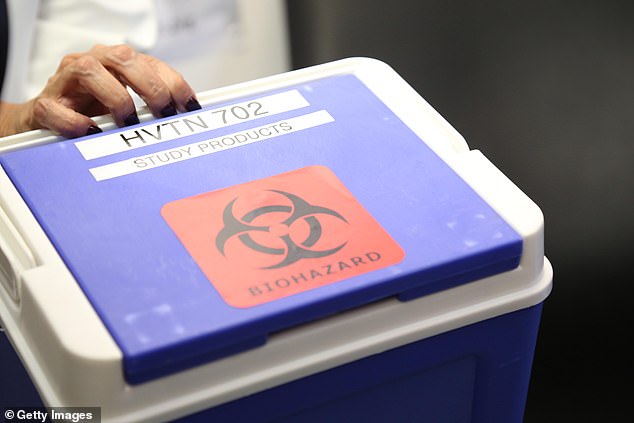
Pictured: HIV vaccines for a trial in South Africa in 2016
The department oversees the US Agency for International Development (USAID) and the President’s Emergency Plan for AIDS Relief (PEPFAR), which have seen drastic cuts since Trump took office.
The administration has defended its position, arguing that other countries need to shoulder the burden of providing aid.
During South African President Cyril Ramaphosa’s White House visit, Trump acknowledged that the foreign aid cuts have been ‘devastating.’
‘Hopefully a lot of people are going to start spending a lot of money,’ Trump added.
‘I’ve talked to other nations. We want them to chip in and spend money too, and we’ve spent a lot,’ he continued.
‘And it’s a big – it’s a tremendous problem going on in many countries. A lot of problems going on. The United States always gets the request for money. Nobody else helps.’
Russell Vought, the director of the US Office of Management and Budget, echoed Trump’s stance during a Congressional committee meeting in early June.
He argued that African countries should take on the responsibility of fighting HIV/AIDS, alleviating the financial burden on the US.
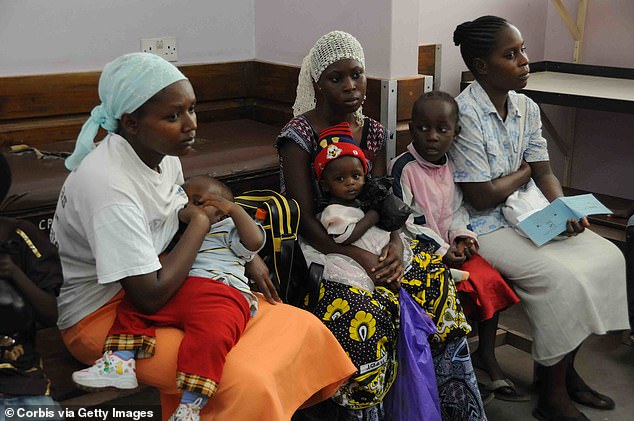
The administration continued providing HIV prevention measures to pregnant and lactating women, but excluded gay men (Pictured: A community outreach center that offered free HIV counseling and testing)
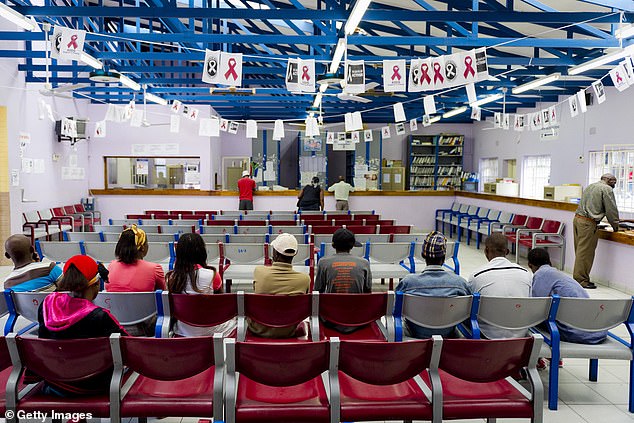
The director of the US Office of Management and Budget argued that African countries should take on the responsibility of fighting HIV/AIDS, alleviating the financial burden on the US. (Pictured: An AIDS clinic in Johannesburg, South Africa)
Vought added that some of the nonprofits facilitating HIV prevention programs ‘are not geared toward the viewpoints of the administration.’
The director’s comments are in line with a waiver issued to PEPFAR programs on February 1 allowing prevention programs to restart only for pregnant mothers.
Vulnerable populations, like members of the LGBTQIA+ community, sex workers, or injecting drug users, weren’t included in the prevention measures.
PEPFAR grants often covered the cost of clinics supplying PrEP at public health centers for these populations, which have suffered closures due to decreased funding.
A spokesperson for the State Department told Reuters that PEPFAR-funded programs would continue to be reviewed for ‘assessment of programmatic efficiencies and consistency with United States foreign policy.’
Public health officials and activists fear that if Trump’s hardline policy toward foreign aid stays consistent, HIV infections will continue in the region.
Linda-Gail Bekker, an HIV expert at the University of Cape Town, said that African countries may not cover the expense of supplying the drug, leaving a gap for more diagnoses.
‘It’s as predictable as if you take your eye off a smoldering bushfire and the wind is blowing: a bushfire will come back,’ she told Reuters.
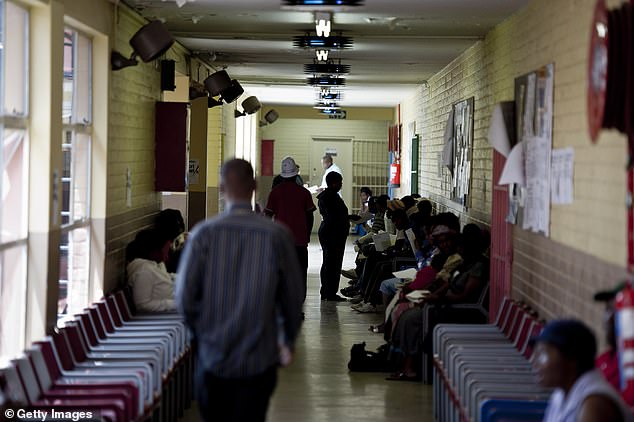
Activists and public health officials have warned that if decreased federal aid continues, HIV transmission rates will increase (Pictured: An AIDS clinic in Johannesburg, South Africa)
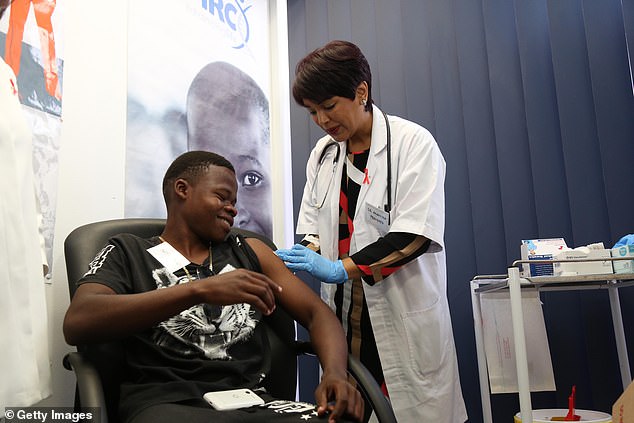
Medical advancements in HIV prevention and treatment included the revolutionary drug PrEP, but access to the medication has been reduced due to cuts by the US (Pictured: a patient at a clinic in South Africa)
Countries like Malawi, Zimbabwe, and Mozambique were almost entirely dependent on US funding for HIV prevention measures, according to UNAIDS.
Other countries, like Ethiopia, responded to the USAID funding cuts by introducing a new payroll tax to pay for HIV medication previously provided by US funding.
Medical advancements for HIV prevention and treatment have progressed significantly in recent years. However, UNAIDS projects that gaps created by a lack of funding could see steps backward.
A Trump administration official told the Daily Mail that ‘America remains the most generous country in the world,’ noting that ‘PEPFAR programs continue to serve nearly 18 million people across over 40 countries.’
‘Both the United States and partner countries want every nation to be self-reliant in this effort to make lasting progress on addressing the HIV/AIDS epidemic and ensure improvements to public health are permanent,’ the official added.












